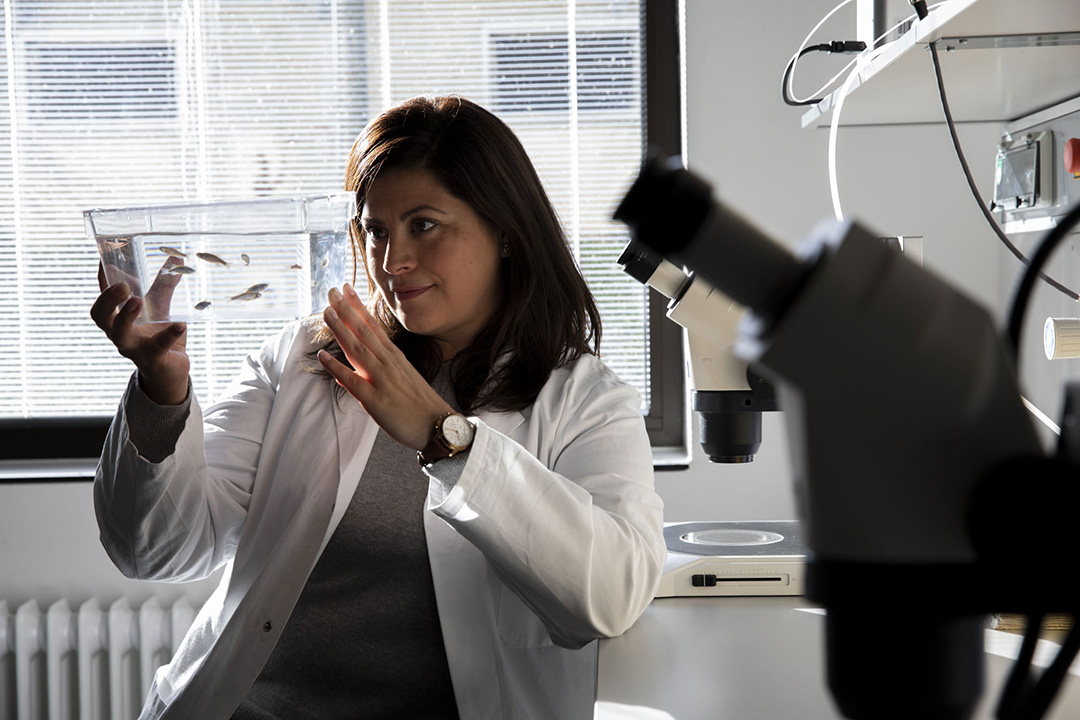
USask research labs to get new, souped-up equipment, thanks to major federal funding
Four University of Saskatchewan (USask) research teams have been awarded nearly $678,000 by the Canada Foundation for Innovation (CFI) for equipment and labs to support leading-edge research in big data analytics, high-speed imaging of heart development, modernizing electrical networks, and expanding computer capacity to process huge volumes of historical data related to Indigenous sovereignty.
The funding, awarded through CFI’s John R. Evans Leaders Fund (JELF), was announced August 11.
JELF provides up to 40 per cent of the cost of academic research infrastructure, with remaining funds solicited from other public and private sources. The final tally of the USask projects is $1.86 million once vendor in-kind support, already committed money, and expected funds are included.
“We are grateful to the CFI for this investment, which supports research that addressed the fundamental health and safety of Canadians,” said USask Vice-President Research Baljit Singh. “The diversity and technological sophistication of our university’s scientific endeavours are on full display here. We are putting our knowledge to work, ensuring people around the globe can thrive. Our commitment to uplifting Indigenization is clearly emphasized through this funding.”
USask recipients of the JELF awards are:
Software analytics research lab ($350,000)
Dr. Chanchal Roy (PhD), computer science professor in the College of Arts and Science, and co-applicants Dr. Debajyoti Mondal (PhD) and Dr. Kevin Schneider (PhD) aim to develop cutting-edge, reliable, secure, sustainable, and cost-effective software to prevent the highly costly errors caused by myriad problems in current software.
The research will help grow Canada’s economy by improving automation, and making computing systems more efficient, benefiting sectors ranging from mining, agriculture and education to health care. At least 120 highly qualified personnel will be trained over the next five years.
The JELF award will fund high-performance computing infrastructure, software analytics workstations, large interactive displays, mobile devices, and wearables such as eye-trackers.
High-speed heart imaging of live zebrafish ($175,000)
Dr. Michelle Collins (PhD), assistant professor of anatomy, physiology and pharmacology in the College of Medicine, will study the developing hearts of zebrafish models to analyze the observable characteristics of disease-associated genes. Many aspects of the cardiac physiology of zebrafish align closely with humans, making them good models to identify genes required for heart development and function. Her findings will address a critical gap in information to diagnose and treat genetic cardiovascular diseases. The JELF award will fund a spinning disk confocal microscope—the first in Saskatchewan—and image analysis computer Collins needs for live imaging of specimens, and will be accessible to labs across campus.
Modernizing electric distribution systems ($137,780)
Dr. C.Y. (Tony) Chung (PhD), College of Engineering professor in electrical and computer engineering, is researching methods to address power distribution challenges confronting electric utilities as they transition to green energy production, compounded by customers who produce energy and feed their excess to the grid. Distributed energy resources (DERs) such as solar power units are creating issues with voltage control, uncontrolled bi-directional power flows, and overloads on traditional utility power grids. Chung is collaborating with SaskPower on the project, which will train 12 highly qualified personnel (HQP). The JELF award will fund a real-time simulation testbed to help develop new data-driven algorithms, design hardware systems to handle DER proliferation and develop home and building energy management systems that will work in tandem with utility power distribution management systems.
Expanding geographical information systems (GIS) lab ($15,200)
Dr. Benjamin Hoy (PhD), associate professor of history in the College of Arts and Science, and co-applicant Dr. Cheryl Troupe (PhD), aim to tackle urgent historical problems around Indigenous sovereignty, land ownership and treaty relationships. They are using GIS to process analyzing a huge volume of geospatial historical data, oral histories, genealogies, censuses, and federal records to understand how Indigenous people responded to Canada and the United States constraining their movement in the 19th and early 20th centuries, and how Métis communities created their sense of space. JELF funding will provide eight desktop computers designed for archival research, GIS applications, and data processing. The project will train eight HQP.

